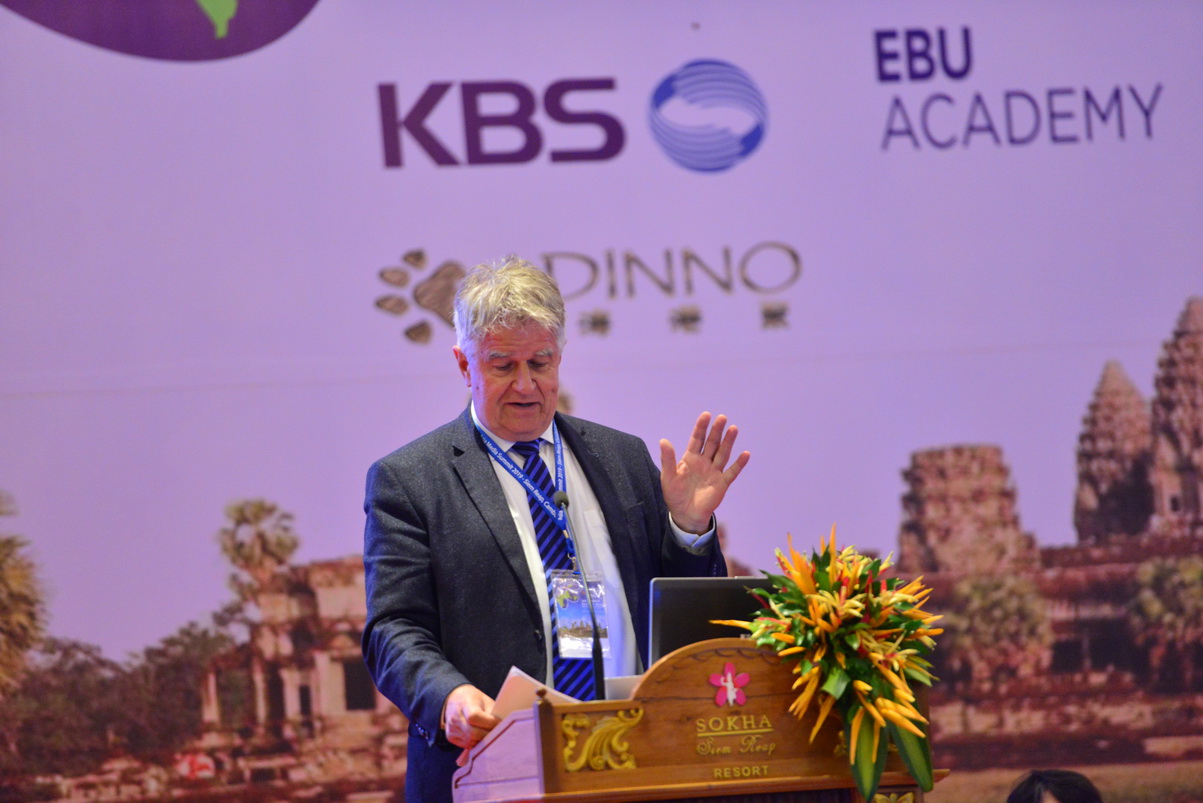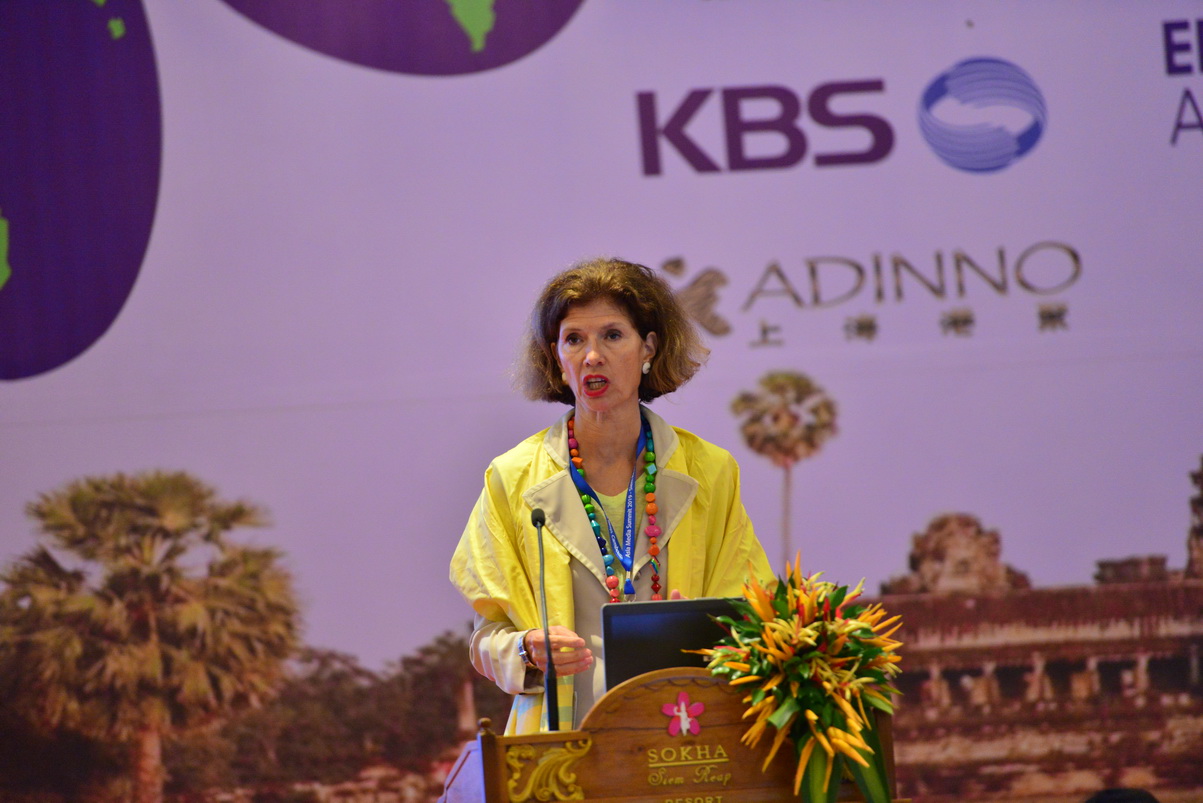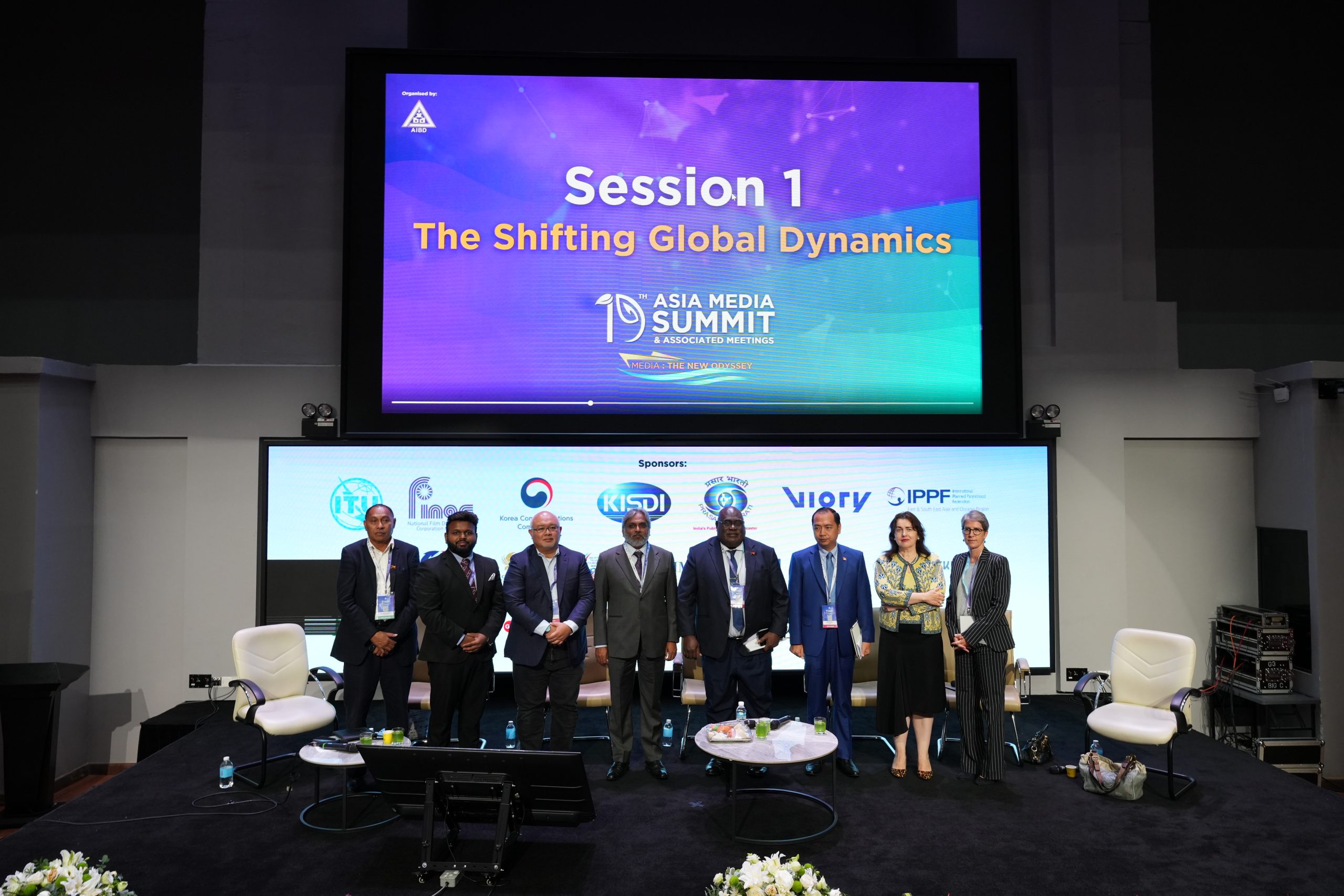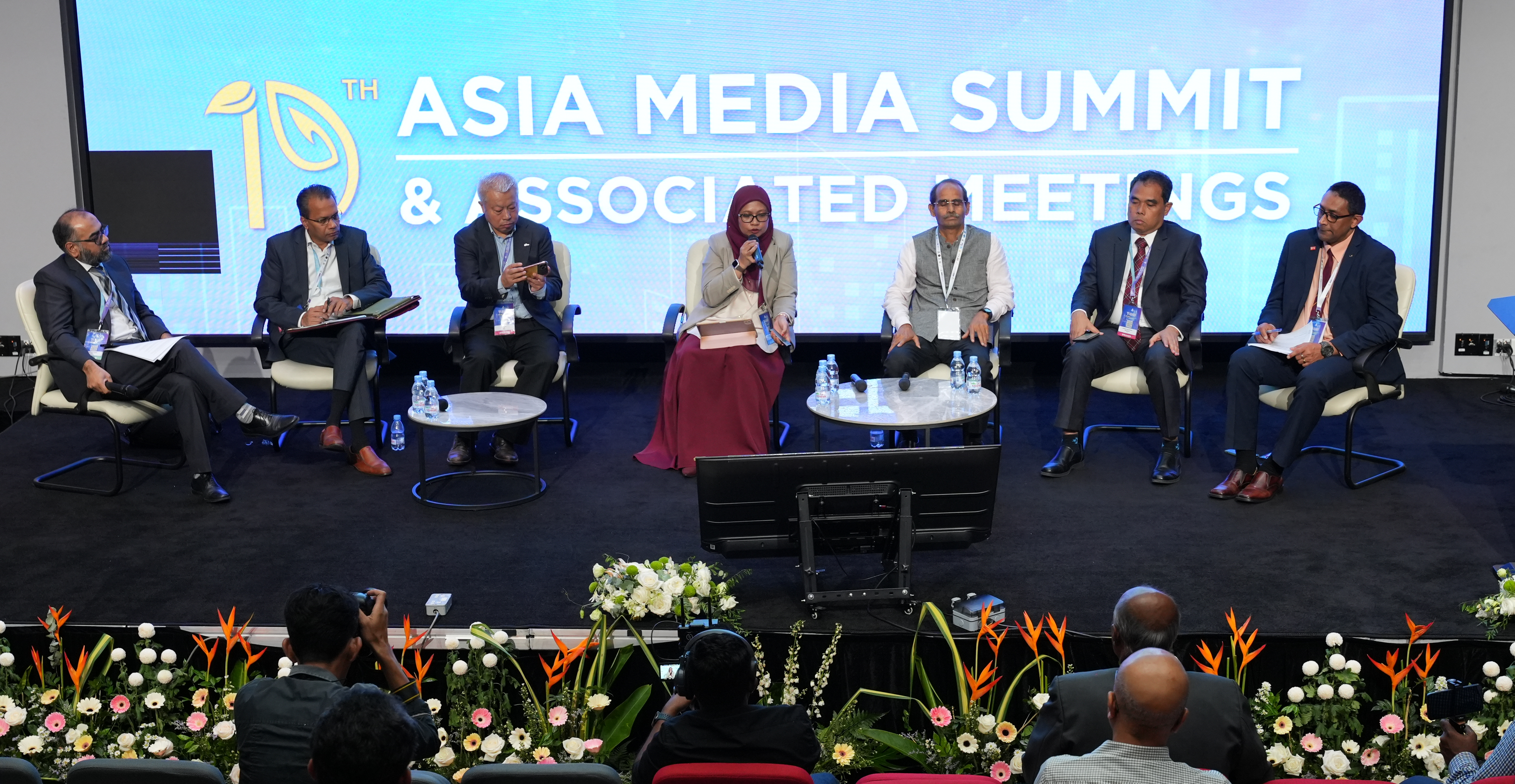
Broadcasters Urged to Know their Audiences well
Success of broadcasters in the digital age requires knowing their audiences and consumption behaviour well, one of four key steps to ensure their audiences believe in their products and services, according to Mr Klaus Bergmann, Head of International Relations at Deutsche Welle, Germany.
Speaking to participants of the 16th Asia Media Summit in Cambodia, Mr Bergmann said broadcast networks must know what devices their viewers use and find where they are in order to tailor programmes to their needs.
“There is also the need to improve digital quality of programmes and stand out amidst competition, and increase engagements between journalists and target groups,” he said.
In his presentation at plenary session 2 on ‘Envisioning the Media in the 4th Industrial revolution’, he shared some best practices to include creating new formats in programming, new ways of storytelling and using artificial intelligence-based technology to reach out to young people.

A reskilling revolution
Another speaker was Ms Nathalie Labourdette, Head of Training, European Broadcasting Union (EBU) who emphasised the need for a new skill set to sustain public service media legacy.
Citing a World Economic Forum (WEF) Report in 2016, Ms Labourdette said that amid the digital revolution the media Industry is the sector that has seen the largest scale of disruption of its traditional business model.
The reasons for this are varied, she said, among them, insufficient understanding of the disruptive changes and lack of alignment between workforce strategy and innovative approaches.
“Firms can no longer be passive consumers of ready-made human capital. They need to invest, collaborate, and allow for cognitive diversity”, she said.
In her presentation, Ms Labourdette outlined the WEF conclusions on the parameters of a reskilling revolution;
1. Individuals’ mindset and efforts will be key.
2. No single actor can solve the job transition and reskilling puzzle alone.







